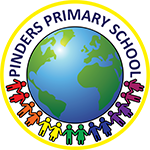KS1 Statutory National Curriculum
What does the National Curriculum say about Phonics?
Key stage 1 - Year 1
During year 1, teachers should build on work from the early years foundation stage, making sure that pupils can sound and blend unfamiliar printed words quickly and accurately using the phonic knowledge and skills that they have already learnt. Teachers should also ensure that pupils continue to learn new grapheme-phoneme correspondences (GPCs) and revise and consolidate those learnt earlier. The understanding that the letter(s) on the page represent the sounds in spoken words should underpin pupils’ reading and spelling of all words. This includes common words containing unusual GPCs. The term ‘common exception words’ is used throughout the programmes of study for such words.
Alongside this knowledge of GPCs, pupils need to develop the skill of blending the sounds into words for reading and establish the habit of applying this skill whenever they encounter new words. This will be supported by practice in reading books consistent with their developing phonic knowledge and skill and their knowledge of common exception words. At the same time they will need to hear, share and discuss a wide range of high-quality books to develop a love of reading and broaden their vocabulary.
Pupils should be helped to read words without overt sounding and blending after a few encounters. Those who are slow to develop this skill should have extra practice.
Pupils’ writing during year 1 will generally develop at a slower pace than their reading. This is because they need to encode the sounds they hear in words (spelling skills), develop the physical skill needed for handwriting, and learn how to organise their ideas in writing.
Pupils entering year 1 who have not yet met the early learning goals for literacy should continue to follow their school’s curriculum for the Early Years Foundation Stage to develop their word reading, spelling and language skills. However, these pupils should follow the year 1 programme of study in terms of the books they listen to and discuss, so that they develop their vocabulary and understanding of grammar, as well as their knowledge more generally across the curriculum. If they are still struggling to decode and spell, they need to be taught to do this urgently through a rigorous and systematic phonics programme so that they catch up rapidly.
Year 1 programme of study
Reading - word reading
Pupils should be taught to:
- apply phonic knowledge and skills as the route to decode words
- respond speedily with the correct sound to graphemes (letters or groups of letters) for all 40+ phonemes, including, where applicable, alternative sounds for graphemes
- read accurately by blending sounds in unfamiliar words containing GPCs that have been taught
- read common exception words, noting unusual correspondences between spelling and sound and where these occur in the word
- read words containing taught GPCs and –s, –es, –ing, –ed, –er and –est endings
- read other words of more than one syllable that contain taught GPCs
- read words with contractions [for example, I’m, I’ll, we’ll], and understand that the apostrophe represents the omitted letter(s)
- read books aloud, accurately, that are consistent with their developing phonic knowledge and that do not require them to use other strategies to work out words
- reread these books to build up their fluency and confidence in word reading
